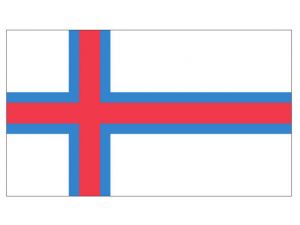Language/Faroese/Vocabulary/Days-of-the-Week
Hi Faroese learners! 😊
In this lesson, we will learn the days of the week in Faroese. It is important to learn these words if you are planning on visiting the Faroe Islands or if you want to improve your language skills. Knowing these words will help you communicate better with the locals and understand more about the culture of the Faroe Islands. So, let’s get started!
Once you've mastered this lesson, take a look at these related pages:How to Say Goodbye in Faroese, How to say Good Bye? & Count to 10.
Learning the Days of the Week[edit | edit source]
In Faroese, the days of the week are different from English because they are named after Norse gods. Faroese days of the week are as follows:
| Faroese | Pronunciation | English |
|---|---|---|
| Mánadagur | [ˈmaunaˌtaːɡʊr] | Monday |
| Týsdagur | [ˈtʰyːsˌtaːɡʊr] | Tuesday |
| Mikudagur | [ˈmikʊˌtaːɡʊr] | Wednesday |
| Hósdagur | [ˈhoːsˌtaːɡʊr] | Thursday |
| Fríggjadagur | [ˈfɹyɪkaˌtaːɡʊr] | Friday |
| Leygardagur | [ˈleiːjaˌtaːɡʊr] | Saturday |
| Sunnudagur | [ˈsuːnːʉˌtaːɡʊr] | Sunday |
Here are some interesting facts about the Faroese days of the week:
- Mánadagur means Moonday in Faroese. It is named after the goddess Máni, who is associated with the moon.
- Týsdagur means Týr's day in Faroese. It is named after the god Týr, who is associated with law and heroic glory.
- Mikudagur means midweek in Faroese.
- Hósdagur means Hórra's day in Faroese. It is named after the god Hórra, who is linked with the mythological world and fertility.
- Fríggjadagur means Freyja's day in Faroese. It is named after the goddess Freyja, who is associated with love, fertility, war and death.
- Leygardagur means washing day in Faroese. In the past, women would use this day to wash clothes and linens.
- Sunnudagur means Sunday in Faroese. It is named after the sun.
Now that we know the Faroese days of the week, let's practice them in context. Here is an example dialogue:
- Person 1: Hey, hvussu hevur tú tað í dag? (Hey, how are you today?)
- Person 2: Eg havi ein góðan dag, tað er sunnudagur í dag. Og tú? (I'm having a good day, it's Sunday today. And you?)
- Person 1: Eg havi eisini ein góðan dag, men tað var mánadagur í gjár. (I'm also having a good day, but yesterday was Monday.)
Before we end this lesson, here's a tip for you to improve your Faroese vocabulary. You can also use the Polyglot Club website. Find native speakers and ask them any questions! Also, don't forget to check out the Faroese Vocabulary section to learn more Faroese words.
➡ If you have any questions, please ask them in the comments section below.
➡ Feel free to edit this wiki page if you think it can be improved. 😎
Other Lessons[edit | edit source]
- Geography
- Drinks
- Health
- Fruits
- Education
- Feelings and Emotions
- Clothes
- Count to 10
- How to say Good Bye?

